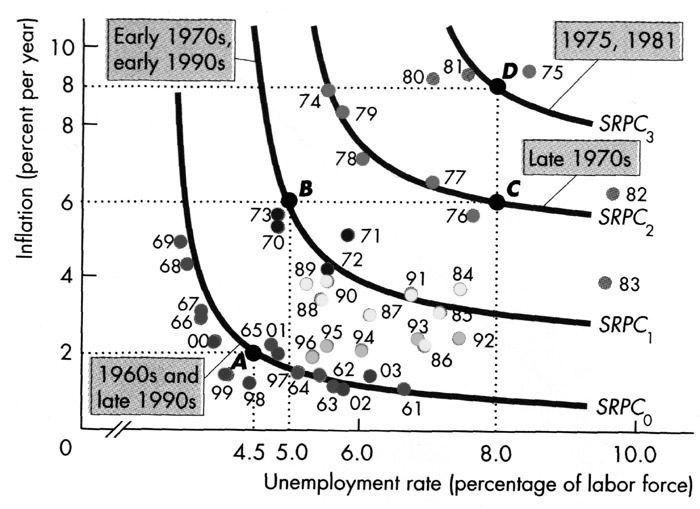Introduction
In the realm of decision-making, it is crucial to consider the limitations of our models and assumptions. The Lucas Critique, named after economist Robert E. Lucas Jr., emphasizes the need to account for how individuals and organizations respond to changes in policy or external factors. This mental model challenges the effectiveness of static models and highlights the importance of understanding human psychology in decision-making. By exploring the prevalence of the Lucas Critique in various contexts, we can better identify its implications and avoid making irrational decisions that are contrary to our best interests.
Relevance of the Lucas Critique in Decision-Making
The Lucas Critique is highly relevant in decision-making processes across personal, business, and public policy contexts. It underscores the need to consider how individuals and groups respond to changes, as their behavior can influence the outcomes of decisions and policies. By incorporating the insights of the Lucas Critique, decision-makers can make more accurate predictions and design effective strategies that align with human behavior.
Anchored in Human Psychology
At the core of the Lucas Critique lies an understanding of human psychology. It acknowledges that individuals and organizations adapt their behavior in response to changes in their environment or incentives. This model recognizes that people are not static entities, but rather dynamic beings who adjust their actions based on anticipated consequences. By recognizing the influence of human psychology, we can better account for how individuals and groups will respond to decisions and policies.
Examples of the Lucas Critique in Various Contexts
- Personal Life Decisions: Imagine a person who sets a goal to lose weight and decides to follow a strict diet plan. However, as the individual progresses, they realize that the plan is too restrictive and unenjoyable, leading to feelings of deprivation and frustration. In response, they might abandon the plan altogether or resort to unhealthy eating habits. This example illustrates how individuals can adjust their behavior in unexpected ways, deviating from the initial plan due to psychological factors such as motivation, satisfaction, and perceived costs and benefits.
- Business Scenarios: In the business world, the Lucas Critique is evident in the design of incentive structures. For instance, a company may introduce a sales commission scheme to motivate its sales team. However, if the commission structure is solely based on short-term sales volume without considering the potential for unethical practices or neglecting customer service, the employees may prioritize closing deals quickly over building long-term customer relationships. By failing to account for the adaptive behavior of employees, the company may inadvertently encourage actions that harm its reputation and long-term success.
- Public Policy-Making: The Lucas Critique has significant implications for public policy-making. For instance, if a government introduces a tax incentive program to stimulate investment in a particular industry, it must consider how individuals and businesses will respond. If investors anticipate that the incentive will be temporary or subject to changes, they may delay their investments or engage in strategic behaviors to maximize their benefits. Neglecting such adaptive responses can lead to unintended consequences and undermine the policy’s effectiveness.
Mental Biases and Psychological Underpinnings
Several mental biases contribute to the occurrence of the Lucas Critique:
- Prospect Theory: People tend to be risk-averse when faced with gains and risk-seeking when faced with losses. This bias can influence their behavior and decision-making, causing them to adapt their actions to maximize perceived benefits or minimize potential losses.
- Confirmation Bias: Individuals have a tendency to seek information that confirms their preexisting beliefs and overlook evidence that challenges them. This bias can lead to a narrow perspective and hinder the accurate assessment of adaptive responses.
- Anchoring Bias: People often rely heavily on initial information when making decisions. This bias can limit their ability to consider alternative viewpoints or adapt their behavior in response to changing circumstances.
Avoiding the Lucas Critique
To avoid succumbing to the pitfalls of the Lucas Critique, it is crucial to adopt a proactive and adaptable approach to decision-making. Here are some strategies:
- Embrace Feedback: Actively seek feedback and adjust your decisions based on new information and changing circumstances. Remain open to alternative perspectives and be willing to modify your strategies accordingly.
- Conduct Robust Analysis: Engage in thorough analysis and research to understand the potential adaptive responses of individuals or groups affected by your decisions. Consider a wide range of scenarios and anticipate how different incentives and constraints may shape behavior.
- Test and Iterate: Whenever possible, test your decisions and policies on a smaller scale before implementing them widely. This approach allows for learning and adaptation based on real-world feedback, reducing the risk of unintended consequences.
Conclusion
The Lucas Critique highlights the importance of accounting for human behavior and adaptive responses in decision-making processes. By understanding the prevalence of this mental model and the psychological biases that contribute to it, we can make more informed choices and design effective strategies. Embracing feedback, conducting robust analysis, and adopting a proactive and adaptable mindset are essential for avoiding the pitfalls of the Lucas Critique. By doing so, we can enhance the effectiveness of our decisions and achieve outcomes that align with our best interests.
